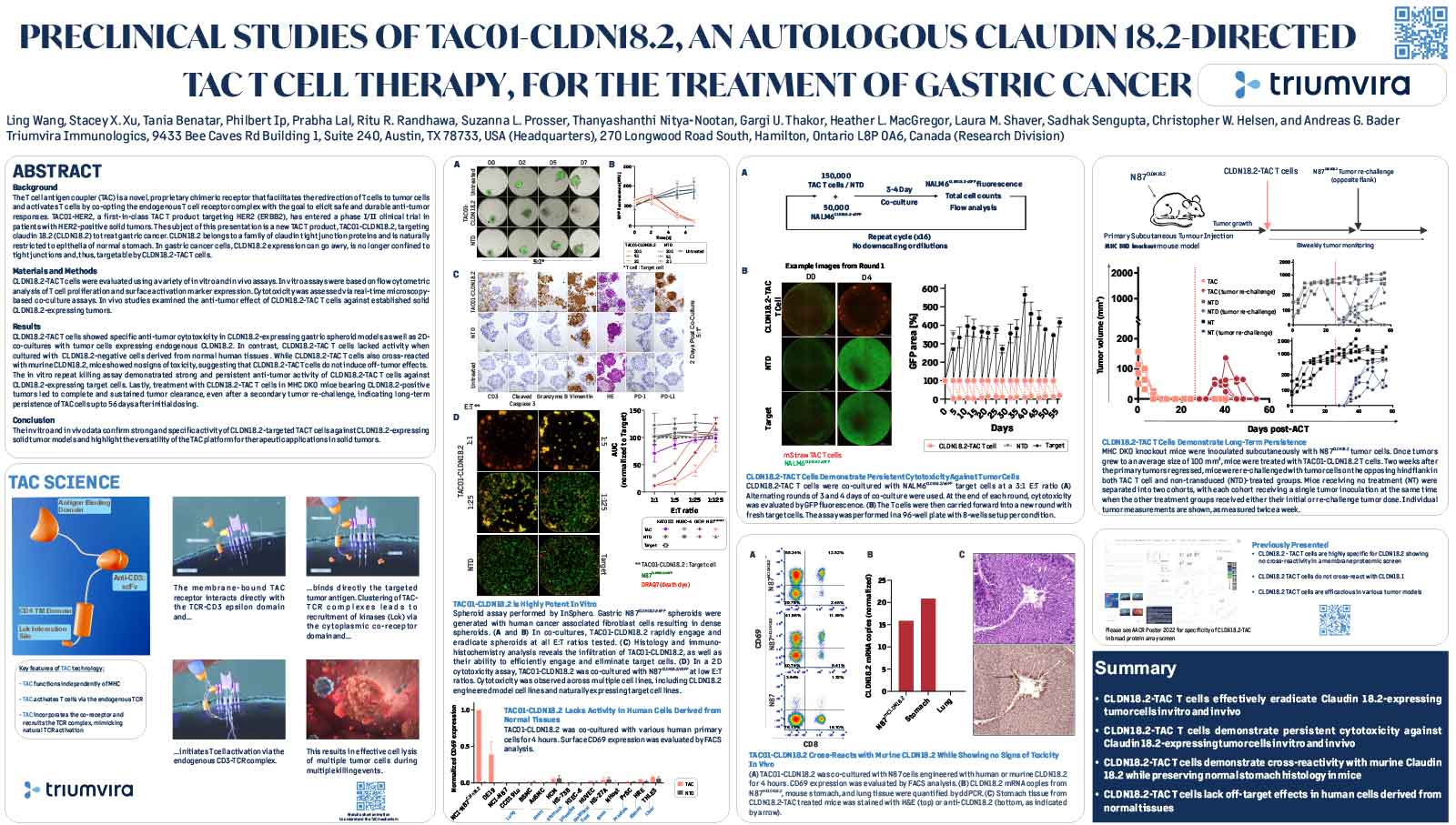ABSTRACT
Background
The T cell antigen coupler (TAC) is a novel, proprietary chimeric receptor that facilitates the redirection of T cells to tumor cells and activates T cells by co-opting the endogenous T cell receptor complex with the goal to elicit safe and durable anti-tumor responses. TAC01-HER2, a first-in-class TAC T product targeting HER2 (ERBB2), has entered a phase I/II clinical trial in
patients with HER2-positive solid tumors. The subject of this presentation is a new TAC T product, TAC01-CLDN18.2, targeting claudin 18.2 (CLDN18.2) to treat gastric cancer. CLDN18.2 belongs to a family of claudin tight junction proteins and is naturally restricted to the epithelia of normal stomachs. In gastric cancer cells, CLDN18.2 expression can go awry, is no longer confined to tight junctions, and is, thus, targetable by CLDN18.2-TAC T cells.
Materials and Methods
CLDN18.2-TAC T cells were evaluated using a variety of in vitro and in vivo assays. In vitro assays were based on flow cytometric analysis of T cell proliferation and surface activation marker expression. Cytotoxicity was assessed via real-time microscopy-based co-culture assays. In vivo studies examined the anti-tumor effect of CLDN18.2-TAC T cells against established solid CLDN18.2-expressing tumors.
Results
CLDN18.2-TAC T cells showed specific anti-tumor cytotoxicity in CLDN18.2-expressing gastric spheroid models as well as 2Dco-cultures with tumor cells expressing endogenous CLDN18.2. In contrast, CLDN18.2-TAC T cells lacked activity when cultured with CLDN18.2-negative cells derived from normal human tissues. While CLDN18.2-TAC T cells also cross-reacted with murine CLDN18.2, mice showed no signs of toxicity, suggesting that CLDN18.2-TAC T cells do not induce off-tumor effects. The in vitro repeat killing assay demonstrated strong and persistent anti-tumor activity of CLDN18.2-TAC T cells against CLDN18.2-expressing target cells. Lastly, treatment with CLDN18.2-TAC T cells in MHC DKO mice bearing CLDN18.2-positive tumors led to complete and sustained tumor clearance, even after a secondary tumor re-challenge, indicating long-term persistence of TAC cells up to 56 days after initial dosing.
Conclusion
The in vitro and in vivo data conrm strong and specific activity of CLDN18.2-targeted TAC T cells against CLDN18.2-expressing solid tumor models and highlight the versatility of the TAC platform for therapeutic applications in solid tumors.

